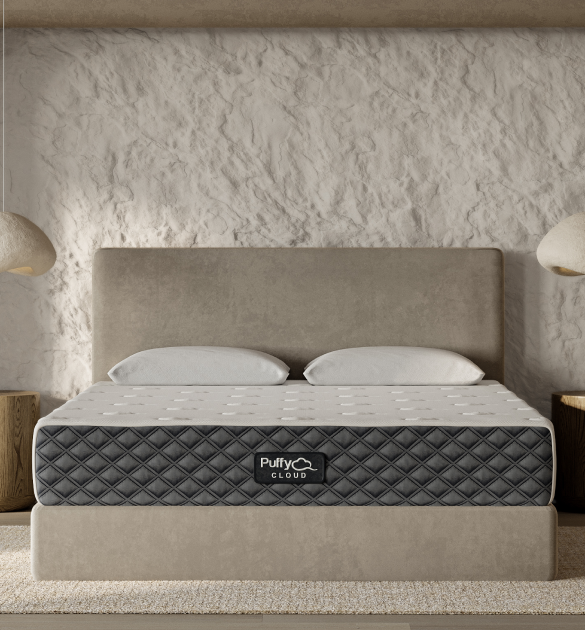Sleep is non-negotiable when it comes to babies. They need it, and let’s be honest, so do you. But a crucial factor that often gets overlooked is the firmness of the baby’s mattress.
Not too soft, not too hard - so, how firm should a baby mattress be? Let’s dive into this complex but critical aspect of your baby’s sleep environment.
Should a Baby Mattress Be Firm or Soft?
There's often a debate over this: Should a baby mattress be rock-hard or plush like a cloud? The simple answer is neither.
- Too Firm: A mattress that is excessively hard can disturb a baby's sleep and isn't recommended.
- Too Soft: A soft mattress poses safety risks such as suffocation and Sudden Infant Death Syndrome (SIDS).
So, where's the middle ground? The Consumer Product Safety Commission recommends that a baby mattress should be firm to avoid the risk of SIDS.
How Firm Should Baby Mattress Be?
When we say a "firm" mattress for babies, what we're talking about is a surface that maintains its shape and won't conform to the shape of the baby's head or face. This is vital for safe sleep. So how do you measure this level of firmness?
- Firmness Scale: Some manufacturers use a firmness scale ranging from 1 to 10, with 10 being the firmest. For babies, a mattress that falls in the 6-8 range is generally ideal.
- Material: Foam mattresses are easier to gauge in terms of firmness as compared to innerspring mattresses. The former often come with a firmness rating.
Why Firm Mattress for Baby?
You might wonder why firm mattresses are advised for babies when adults often prefer softer surfaces. Here's why:
- SIDS Risk Reduction: Firm mattresses reduce the risk of Sudden Infant Death Syndrome, as they help maintain an open airway.
- Physical Development: A firm surface supports the baby's growing bones and keeps the spine in alignment, which is crucial during these formative years.
- Rolling Over: A firmer mattress makes it easier for babies to roll over as they grow, aiding in their physical development.
Check out Puffy mattress reviews from real customers and see how we compare with other brands.
What Pediatricians Say about Mattress Firmness
Medical professionals are in agreement: a firmer mattress is the way to go. Pediatricians advise that newborns especially should be placed on a firm mattress to reduce the risk of SIDS.
Types of Baby Mattresses: A Brief Overview
- Foam Mattresses: Lightweight and often less expensive. Look for high-density foam for greater firmness.
- Innerspring Mattresses: More expensive but also more durable. The firmness can be inconsistent.
- Organic Mattresses: Made from natural materials like organic cotton. They can be both firm and eco-friendly.
How to Test Mattress Firmness
It's not enough to go by what the label says; you should test the mattress yourself.
- The Hand Test: Press your hand into the mattress and see how quickly it regains its shape. A quicker rebound indicates better firmness.
- The Sit Test: Some experts recommend sitting on the mattress to check its firmness. If it doesn't sink much, it's likely to be sufficiently firm for a baby.
- Consult Reviews: Look for customer reviews that focus on the firmness aspect.
Conclusion
Finding the right level of firmness for your baby's mattress is more than just a comfort concern; it's a safety issue. From reducing the risk of SIDS to aiding in your child’s physical development, a firm mattress serves multiple critical functions.
Use our store locator to find the closest furniture or mattress store near you and feel the cloudlike comfort of our Puffy Mattress in person.
While it may take some research and testing to find that perfect mattress, the peace of mind it brings is worth every minute spent. So when in doubt, always go on the firmer side for your little one's slumber sanctuary.
Note: This is an educational article. View Puffy's current mattress sizes and options.

- 6 layers of award-winning luxury.
- Medium-firm feel.
- Responsive memory foam.
- 365-night sleep trial.












